Iconic Joburg ice rink being transformed into television production hub

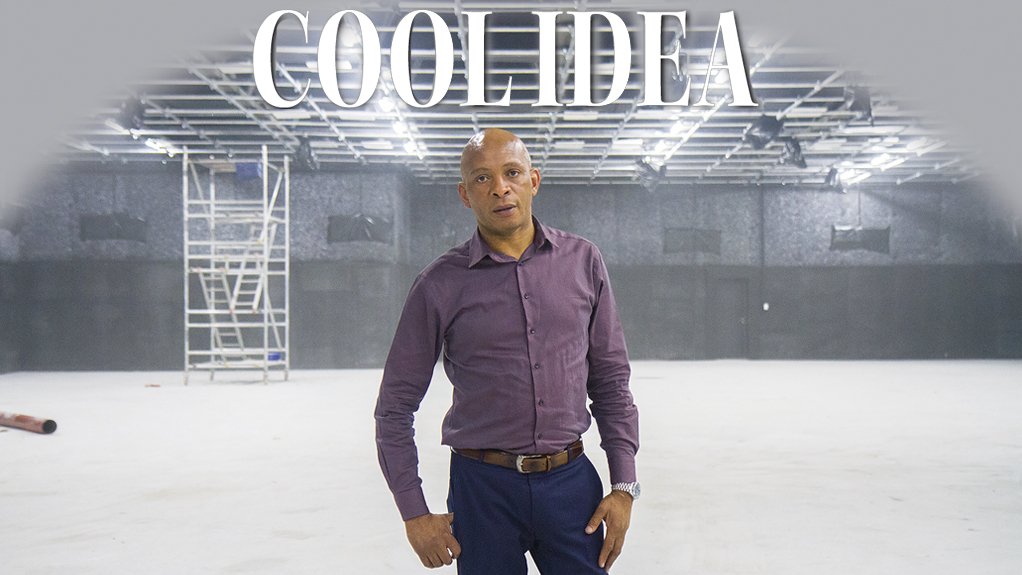
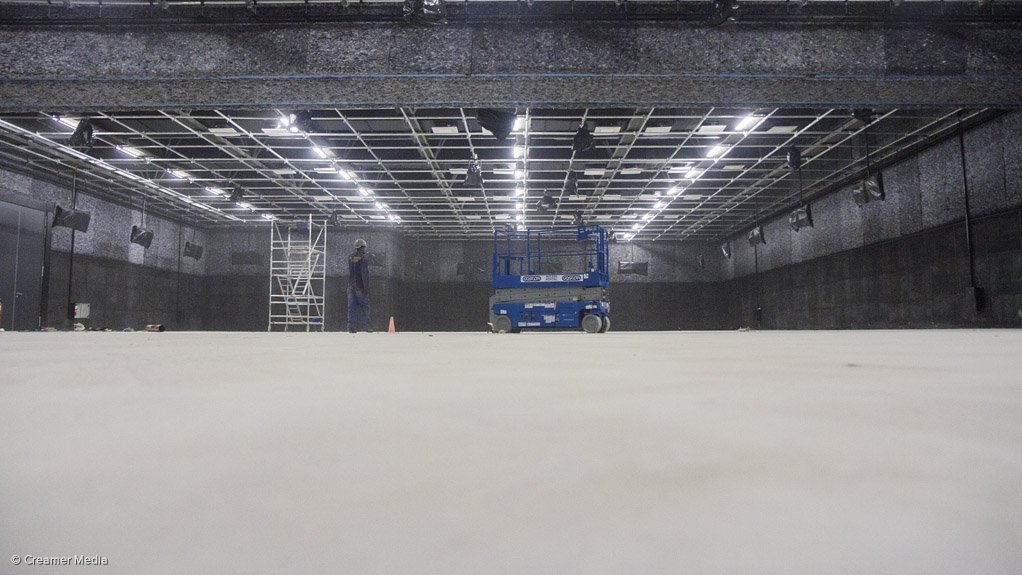
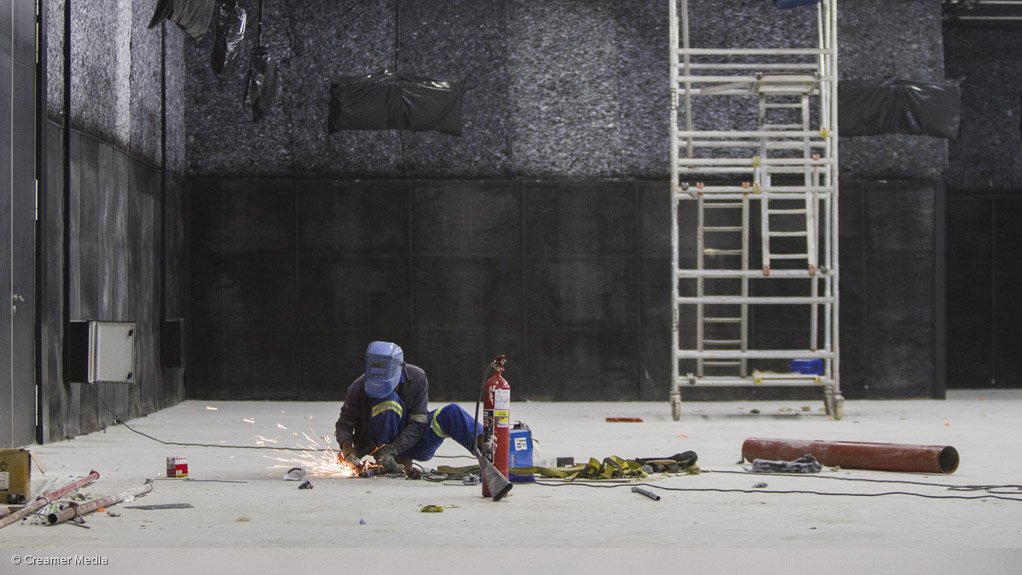
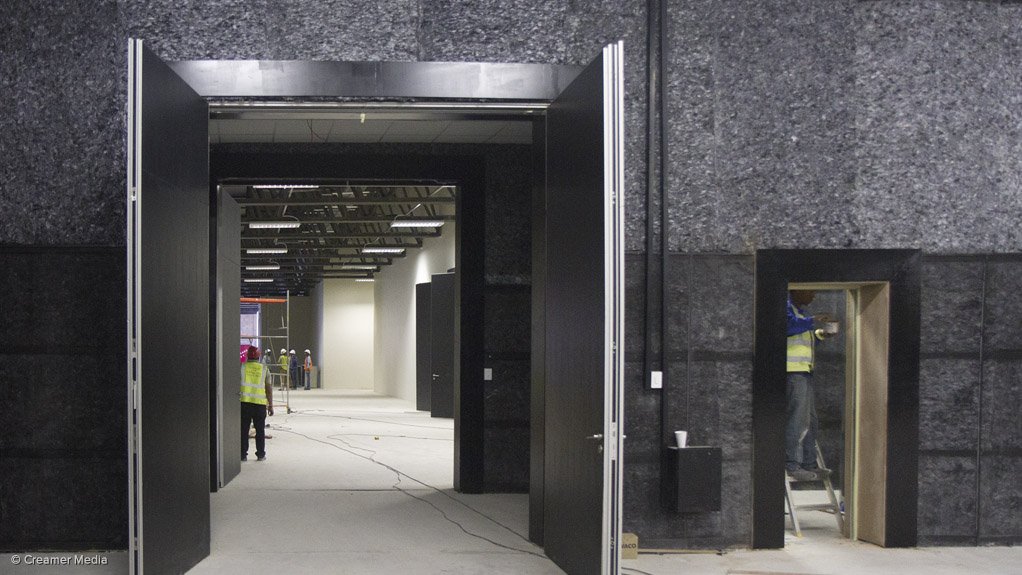
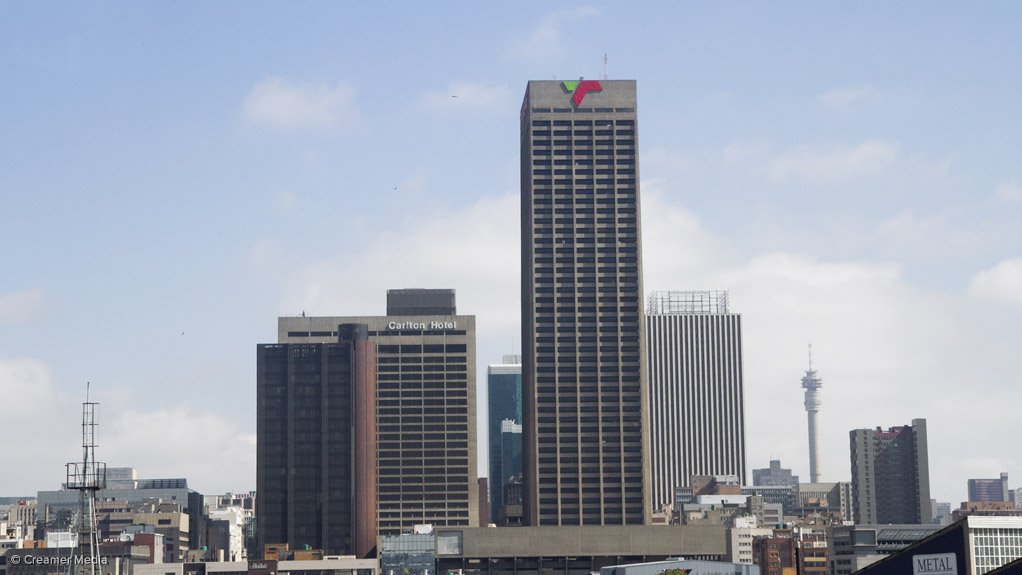
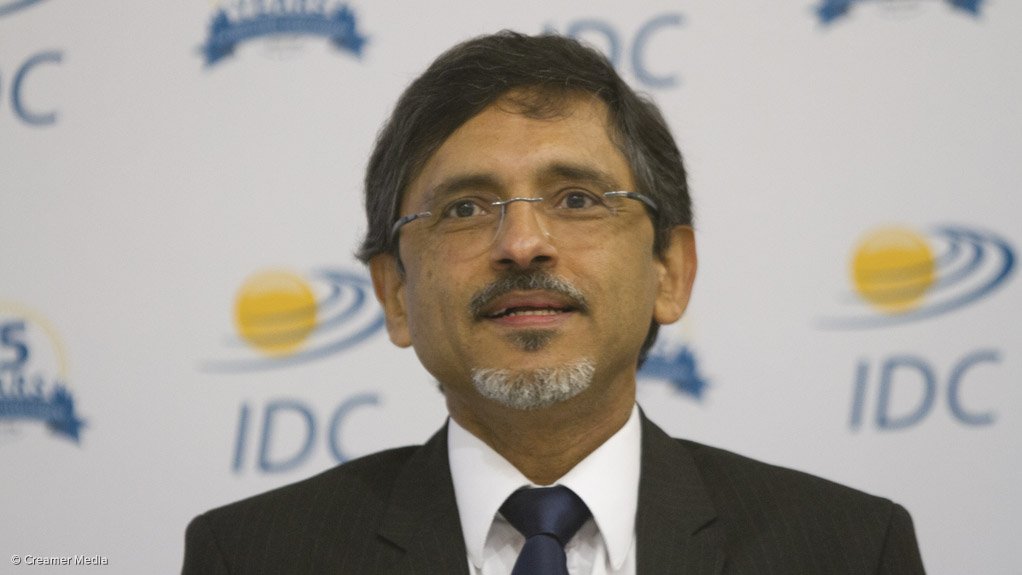
OPENING THE FLOOR The five and six studios at Sky Rink Studios are separated by sound-proof partitioning, which can be removed to create a 1 088 m2 studio
Photo by Duane Daws
BUILDING DREAMS Construction of Sky Rink Studios started in April this year and the studio is expected to stat trading early next year
Photo by Duane Daws
OPENING DOORS Sky Rink Studios will assist Africa’s story tellers by providing the filming and production facilities to reach a global audience
Photo by Duane Daws
CARLTON PRECINCT The repurposing of the former Sky Rink ice-rink (foreground) into the Sky Rink Studios forms part of the City of Johanneburg’s Urban Development Zone tax incentive programme
Photo by Duane Daws
EBRAHIM PATEL Government has invested heavily to create a South African film industry that would make the country the film location of choice globally
Photo by Duane Daws
The Sky Rink atop the Carlton Centre’s parking lot in downtown Johannesburg always had something of an edge to it. Experienced ice-skaters, often with a cigarette in their mouths, would make little effort to disguise their disdain for beginners as they weaved effortlessly and at extreme speed through the lesser-skilled throngs. The dingy atmosphere was fused with excitement and nobody ever left without a story or two to tell.
Now that same gritty location is in the process of being transformed into an African story-telling hub, with the final touches being put to the creation of a new television production house, dubbed Sky Rink Studios. All going to plan, the curtain will rise on the 2 400 m2 studio and production facility in early 2017, the disused rink having undergone an extreme cultural makeover that few past patrons would have ever imagined.
In his opening address at the Sky Rink Studios launch in October, South African actor Jerry Mafokeng voiced his enthusiasm for the transformation, arguing that the studio should become the platform from which Africa could express its “dreams and visions” to a local, continental and global audience.
Economic Development Minister Ebrahim Patel, meanwhile, made the far more prosaic, but as important, link between the development and government’s economic policy, which held up the film making industry as very much part of South Africa’s economic diversification ambitions.
Location of Choice
He pointed out that government’s choice to invest heavily to create a South African film industry that would make the country “the film location of choice globally” had seen the Industrial Development Corporation (IDC) providing the industry with about R1.1-billion in investment support.
The IDC has not only provided financial assistance for local production companies to help grow South Africa’s film industry, but has also sponsored a number of internationally successful films, such as Mandela: Long Walk to Freedom, the Oscar award-winning Tsotsi and the upcoming Mandela’s Gun.
Patel noted that the growth of the local film industry would support job creation not only in the film production space, but also for costume and set design, and food catering, as well as acting.
IDC high-impact and regions executive William Smith asserted that the launch of Sky Rink Studios was an important milestone for South Africa’s motion picture industry. He pointed out that the IDC had taken a value-chain development approach “based on local consumption” and what had been successfully pursued so far within industry in terms of “locally produced film and television series” to ensure sustainable job creation.
The IDC’s R187-million Sky Rink Studios investment would “help alleviate the shortage of high-quality studios in Gauteng and, in the process, facilitate the development of black ownership of crucial infrastructure and production facilities in the South African film industry”.
The studio, which will lease filming and production facilities, as well as office space to production companies, is expected to offer opportunities for local entrepreneurs and create about 470 production-based jobs.
National Empowerment Fund (NEF) Umnotho Fund manager Zama Khanyile pointed out that Sky Rink Studios would add much-needed capacity and studio availability in “the heart of production in South Africa”, as about 70% of local film and television production took place in Gauteng.
Further, she highlighted that the construction of the studio provided “tangible socioeconomic benefits” through job creation, infrastructure development and the rejuvenation of the Carlton precinct, all of which would assist in securing more investment into the bustling City of Johannesburg (CoJ).
Khanyile pointed out that the NEF had provided debt and equity finance to the tune of R40-million towards the construction, equipment and human capital requirements of Sky Rink Studios.
“The NEF will continue to support [Sky Rink Studios] through our postinvestment unit, which stands ready to provide business support to ensure that [it] really unlocks this empowerment commitment,” she added.
CoJ economic development and tourism executive director Ravi Naidoo expressed his excitement at the launch of the studio, which highlighted the success of the Carlton precinct rejuvenation programme, and formed part of the CoJ’s Urban Development Zone (UDZ) tax incentive programme. The programme provides tax rebates for companies and property owners that refurbish buildings in Johannesburg’s city centre.
Naidoo pointed out that the UDZ had resulted in refurbishment investments worth R14-billion since 2006 and that the next 15 years would see the CoJ looking to secure an additional R120-billion in funding for the urban redevelopment of Johannesburg’s inner city.
The central business district is home to a vast and growing residential sector and the head offices of a number of the country’s financial houses, as well as the headquarters of the country’s main industrial logistics operator, Transnet.
Studio Visionaries
Sky Rink Studios, the brainchild of executive chairperson Frank Mohapi and executive directors Marvin Mathibe and Miles Britton, was established in response to the lack of studio and production facility availability in Gauteng.
In an exclusive interview with Engineering News, Mohapi explained that the studio’s founders had initially approached Transnet, which owns the Carlton Centre complex, to set up facilities in the 2 000-seat ballroom at the Carlton Hotel.
Transnet subsequently offered them the disused Sky Rink, a 4 000-seat ice rink arena. “When we walked into Sky Rink, we realised that the place was ideal for studio construction,” Mohapi recounted.
He noted that Transnet had received a number of proposals for Sky Rink, including one for an indoor football arena. While Transnet assessed the various proposals, Mohapi and associates started engaging with architects to determine the best design for the studio. “Originally, we were looking at constructing two or three studios, but, after further research, we decided to construct six.”
The six studios, for which construction started in April this year, cover 2 424 m2 and will each have a dedicated control room, three dedicated high-definition cameras, a sound room and production-quality light-emitting- diode lighting once the studio starts trading in February next year.
Sky Rink Studios operations manager Mpho Mtsweni explained during a tour of the facilities that studios 5 and 6, the two largest, were separated by soundproof partitioning, which could be removed to create a 1 088 m2 studio.
The six studios are all located on the sixth floor of the Carlton Sky Rink building, while a mezzanine floor above the studios will house the production facilities.
Once completed, Sky Rink Studios will have ten postproduction suites and green rooms, which, Mohapi notes, could be increased to 20 facilities. Sky Rink Studios will also have animation and visual effects capabilities, make-up rooms and private and communal artiste waiting rooms, as well as 300 dedicated parking bays.
Sky Rink Studios will also have a central apparatus room (CAR) on the mezzanine floor with broadcasting, channel hosting and play-out capabilities. Owing to the installation of significant fibre infrastructure in the building, the CAR will also be capable of international live streaming.
Mohapi points out that having dedicated filming, production and broadcasting facilities in close proximity to one another was a significant value-add offering to production houses, as it would allow them to get content to audiences faster.
The ground floor of the building is being converted from a gym into an open-plan production office space.
Business Model Unpacked
Mohapi explains that the business model for Sky Rink Studios is to rent the office space to production companies, which can then make use of the film and postproduction facilities as they are required.
Having a number of production houses under one roof could also help promote collaboration, which should improve the quality of locally produced content and help develop an African style of filming.
While Sky Rink Studios will initially be geared toward producing local television content, Mohapi points out that the company is engaging with film professionals in other parts of Africa to further develop the continent’s film industry.
“Through the facilitation of the Gauteng Growth and Development Agency, there are two productions in Ghana that Sky Rink Studios will be part of and which will [involve] South African and Kenyan writers,” he stated, adding that the concept for the productions was developed in Kenya and would be shot in South Africa.
Through Sky Rink Studios’ engagement with the Kenya Film Commission, the need for incentive programmes has been highlighted as an important vehicle to develop African content that can be broadcast globally using the studio facilities.
“We are also looking at producing a number of telenovelas with writers from Cameroon, Nigeria and South Africa to get an African production off the ground,” he says.
Mohapi adds that, while the studio is currently best suited to television production, expansion into larger, film-based production is planned. “The aim of Sky Rink is to position itself as the preferred studio destination for the African and international film producers.”
Article Enquiry
Email Article
Save Article
Feedback
To advertise email advertising@creamermedia.co.za or click here
Announcements
What's On
Subscribe to improve your user experience...
Option 1 (equivalent of R125 a month):
Receive a weekly copy of Creamer Media's Engineering News & Mining Weekly magazine
(print copy for those in South Africa and e-magazine for those outside of South Africa)
Receive daily email newsletters
Access to full search results
Access archive of magazine back copies
Access to Projects in Progress
Access to ONE Research Report of your choice in PDF format
Option 2 (equivalent of R375 a month):
All benefits from Option 1
PLUS
Access to Creamer Media's Research Channel Africa for ALL Research Reports, in PDF format, on various industrial and mining sectors
including Electricity; Water; Energy Transition; Hydrogen; Roads, Rail and Ports; Coal; Gold; Platinum; Battery Metals; etc.
Already a subscriber?
Forgotten your password?
Receive weekly copy of Creamer Media's Engineering News & Mining Weekly magazine (print copy for those in South Africa and e-magazine for those outside of South Africa)
➕
Recieve daily email newsletters
➕
Access to full search results
➕
Access archive of magazine back copies
➕
Access to Projects in Progress
➕
Access to ONE Research Report of your choice in PDF format
RESEARCH CHANNEL AFRICA
R4500 (equivalent of R375 a month)
SUBSCRIBEAll benefits from Option 1
➕
Access to Creamer Media's Research Channel Africa for ALL Research Reports on various industrial and mining sectors, in PDF format, including on:
Electricity
➕
Water
➕
Energy Transition
➕
Hydrogen
➕
Roads, Rail and Ports
➕
Coal
➕
Gold
➕
Platinum
➕
Battery Metals
➕
etc.
Receive all benefits from Option 1 or Option 2 delivered to numerous people at your company
➕
Multiple User names and Passwords for simultaneous log-ins
➕
Intranet integration access to all in your organisation





















